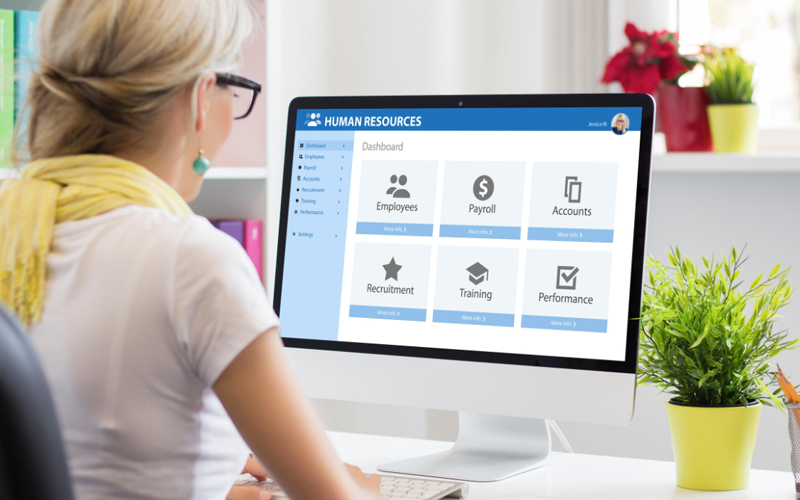HR leaders today face a practical challenge of delivering more value while maintaining lean operations. This is where HR shared services come into the picture. By centralising routine activities such as payroll, benefits administration, and employee queries, businesses can simplify processes, allowing HR to focus on strategy. Studies show that mature shared services teams support several hundred employees per HR staff member, highlighting the clear link between HR shared services’ efficiency and business productivity.
HR shared services: the backbone of modern HR
HR shared services (HRSS) operate as a central hub for all operational and tactical HR activities. The HRSS model is designed to streamline various processes and deliver consistent support across the organisation. Instead of being spread out across separate departments, HRSS consolidate them into a single unit, making it more efficient to provide services and easier to scale.
Some of the core functions of HRSS typically include:
- Centralised service delivery: HRSS serve as a one-stop solution for employees and managers. By bringing all HR processes under one roof, organisations eliminate duplication and ensure employees receive uniform support regardless of location or business unit.
- Self-service platforms: Digital self-service portals of modern HRSS help employees manage their routine tasks themselves, such as applying for leave, checking payslips, or updating personal information. This reduces the administrative burden on HR teams and improves the employee experience.
- Process handling: HR shared services handle the full spectrum of HR processes such as payroll, benefits administration, onboarding, and records management, among others. Centralising these tasks ensures shorter turnaround times and better management, which directly contributes to HR shared services' efficiency.
- Inquiry handling: HRSS handle employee queries centrally and acts as their first line of support. Helpdesks and digital case management systems ensure timely and accurate responses to queries.
- Data analysis: By consolidating HR data, shared services provide reports and insights on employee engagement, attrition, and performance trends. These insights help leaders make informed decisions and contribute to the long-term ROI of HR shared services.
A typical HRSS model in practice includes several components that drive the ROI of HR shared services.
- Structured, tiered support such as self-service options, helpdesks, and specialist assistance for complex issues.
- Workflow automation to reduce the manual effort on repetitive tasks.
- Case and knowledge management tools to enhance transparency and accelerate query resolution.
- Integrated data analysis and reporting platforms deliver insights for improved decision-making.
- Change management tools for smooth adoption of new systems and continued engagement.
from efficiency to ROI: why HR shared services deliver more
The value of HR shared services becomes clear when we examine the benefits and advantages it brings.
- Efficiency: With standardised processes and digital tools, routine tasks are completed faster and with fewer errors. Employees can resolve basic queries through self-service, freeing HR teams to focus on higher-value tasks. This combination of speed and accuracy defines HR shared services’ efficiency.
- Scalability: As organisations expand, HR shared services scale smoothly without the need to grow headcount at the same pace. A central hub can handle increasing volumes of payroll, onboarding, or queries across regions with only incremental adjustments. This built-in HR shared services scalability is particularly valuable for companies operating globally or experiencing rapid growth, where consistency and agility are critical.
- Return on Investment (ROI): Consolidation leads directly to cost savings through lower transaction costs, fewer redundancies, and reduced administrative overheads. A 2024 survey of HR outsourcing found that administrative costs could drop by 20 to 30% through shared models. Moreover, productivity improves as HR professionals reclaim time for strategic initiatives. The result is a more agile HR function that delivers both financial and strategic returns.
- Consistency and compliance: Compliance is a built-in advantage of HR shared services. HRSS reduce the risks of non-compliance and ensures a uniform employee experience, thanks to a single hub managing policies, processes, and data. This consistency is especially valuable in industries where regulatory requirements are complex.
how AI is redefining HR shared services
AI amplifies HR shared services’ efficiency and scalability by managing high-volume tasks, providing predictive insights, and improving employee experiences. Some of the measurable gains include:
Time saved, efficiency gained: One of the clearest measures of this impact is the HR ticket deflection rate, which is the percentage of employee requests resolved by AI without human intervention. AI also dramatically shortens response times by providing instant answers to queries. At scale, these improvements translate into hours of productivity regained each week for HR teams.
Employee experience equals smooth operations: AI is reshaping the employee experience. Faster and more accurate responses improve the quality of service. Employees no longer wait for ticket queues to clear; they receive immediate answers to routine queries, which strengthens trust and raises satisfaction with HR support.
AI drives strategic impact: By tracking the right metrics, such as churn, delays, and disengagement, AI can predict potential employee and management issues that can be resolved before they escalate into larger problems. Such predictive ability goes beyond measurable ROI to drive an organisation’s internal health through smooth operations and employee satisfaction.
how can Infosys BPM help with HR shared services?
Infosys BPM partners with enterprises to design and operate HR Shared Services that combine efficiency, scalability, and measurable ROI. By integrating digital tools and AI, Infosys BPM helps organisations streamline HR operations for future growth.
FAQ
HRSS reduces costs by centralizing redundant functions like payroll and benefits into a single, scalable hub. Consolidation typically lowers administrative overhead by 20% to 30% through improved economies of scale and reduced transaction costs. This capital release allows organizations to reinvest budget into strategic talent initiatives rather than operational maintenance.
No, enterprise-grade AI within HRSS is deployed within secure, private cloud environments that adhere to strict data sovereignty laws. Unlike public models, these systems use role-based access controls to ensure sensitive employee PII is never exposed during automated ticket resolution. This ensures that efficiency gains from automation do not come at the cost of regulatory non-compliance.
HR Shared Services consolidates operations internally (or via a dedicated partner) to standardize delivery across all business units, whereas traditional outsourcing often offloads specific tasks in isolation. HRSS creates a "single source of truth" for data and processes, enabling unified reporting and analytics. This integration provides leadership with better visibility into workforce trends compared to fragmented outsourcing models.








